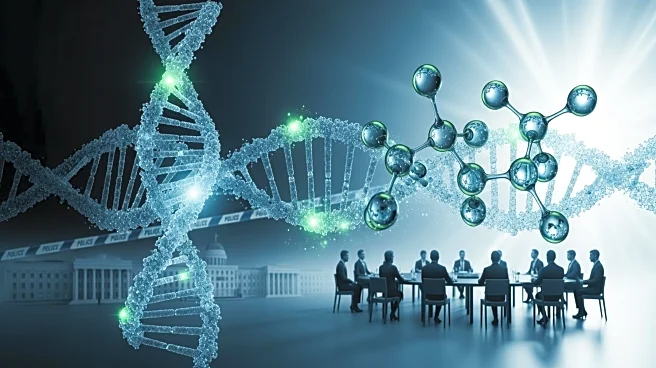What's Happening?
Onchilles Pharma has published a landmark study on the ELANE pathway, demonstrating its potential in cancer therapy. The study, published in Cell Reports Medicine, highlights the efficacy of N17350, a drug candidate that targets cancer cells while sparing
healthy tissue and activating immune function. N17350 has shown promise in preclinical studies, delivering selective tumor killing and immune activation across various solid tumor types. The company has secured $25 million in Series A1 financing to advance N17350 into clinical trials, with plans to initiate first-in-human studies in 2026. Dr. Thomas A. Buchholz, a global expert in breast cancer research, has been appointed as a clinical advisor to guide the development strategy.
Why It's Important?
The advancement of N17350 and the ELANE pathway represents a significant breakthrough in cancer therapy, offering a new approach to treating solid tumors. By selectively targeting cancer cells and preserving immune function, N17350 has the potential to overcome the limitations of traditional chemotherapy and immunotherapy. The successful preclinical results and substantial financing support the transition to clinical trials, which could lead to new treatment options for patients with chemotherapy-resistant and immunologically 'cold' tumors. As cancer remains a leading cause of death worldwide, innovations like N17350 could redefine cytotoxic cancer therapy and improve patient outcomes.
What's Next?
Onchilles Pharma plans to initiate first-in-human trials of N17350 in Australia early next year, with U.S. patient enrollment expected in mid-2026. The trials will evaluate the safety and efficacy of N17350 across multiple solid tumor types, including breast, skin, and head and neck cancers. The company aims to demonstrate clinical proof-of-concept by the second half of 2026, potentially paving the way for broader applications of the ELANE pathway in cancer treatment. The appointment of Dr. Buchholz as a clinical advisor will support the strategic development of N17350, particularly in neoadjuvant settings where early data suggest the potential to eliminate tumors prior to surgery.















